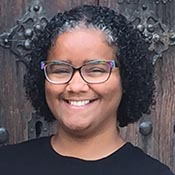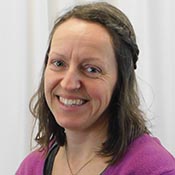WATCH NOW
DOWNLOAD PRESENTATION SLIDES


Using Mindfulness and Positive Psychology to Cope with Race Related Trauma
RECORDED ON THURSDAY, JULY 16, 2020
Presented by Dr. Karisse A. Callender, Assistant Professor, Department of Counselor Education and Counseling Psychology, Marquette University; and Dr. Alie Kriofske Mainella, Grad ’06, Assistant Professor, Department of Counselor Education and Counseling Psychology, Marquette University College of Education.
In this session, we will provide an overview on how to use mindfulness and positive psychology techniques to cope with symptoms of race-related trauma. You will learn how to incorporate practical skills into your lifestyle to help you focus on gratitude, selflove, and self-compassion which will ultimately help to improve the quality of your mental health during these difficult times and beyond.
More about this session
Dr. Karisse A. Callender is an assistant professor in the department of counselor education and counseling psychology at Marquette University. She is a Licensed Professional Counselor (LPC) and Substance Abuse Counselor (SAC) in the state of Wisconsin. Karisse was introduced to yoga and mindfulness in 2009 and she has maintained a personal practice since then. She leads the Mindfulness and Quality of Life research team where she focuses on which aspects of mindfulness work for individuals and how those aspects work, and how mindfulness based interventions may improve wellbeing and quality of life. Karisse incorporates mindfulness in her classes and enjoys sharing mindfulness and wellness information with others as she continues to learn on this journey.
Dr. Alie Kriofske Mainella, Grad ’06, is an assistant clinical professor in the counselor education and counseling psychology department at Marquette University. She graduated from Marquette as a Trinity Fellow in 2006. After her time at Marquette ended, and before receiving her Ph.D. in Rehabilitation Counselor Education from the University of Wisconsin, Alie started and ran a youth program for young people with disabilities where she taught independent living skills, ran support groups and worked in service to young people with a wide variety of disabilities. Alie has taught the course "Positive Psychology" to more than 200 undergraduates at the University of Wisconsin, and incorporates the practices of positive psychology into her practice in her specialization of rehabilitation counseling, service to people with disabilities, and especially service to the university and her students in her courses as a professor.